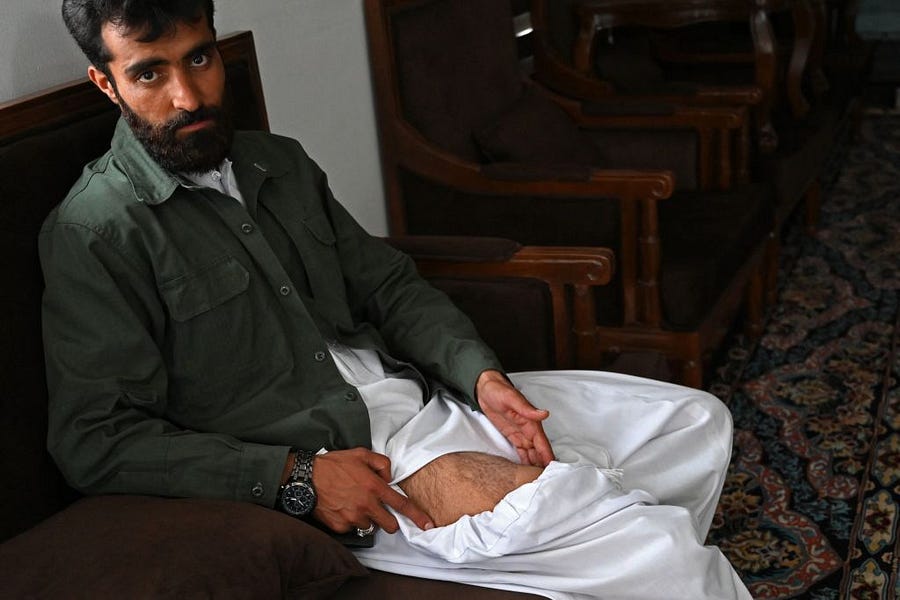I think Joe Biden’s decision to fully withdraw U.S. forces from Afghanistan is a mistake. It’s mistaken on strategic and moral grounds. I hope I’m wrong. But when even administration officials and experts who favor the decision concede that our pullout—of a very small contingent of troops—could result in a Taliban takeover, it seems a safe bet that it will happen.
That decision has been made and there’s no point arguing about it anymore. But there’s still one thing the United States can do—and morally must do: Get the people who signed up to work and fight with us out of there.
Over the last 20 years, thousands of Afghans worked with U.S. and NATO forces as interpreters, cultural advisers, etc. They chose to do so knowing that they put their lives and the lives of their families at risk. The Taliban knows who most of them are and will find out about the rest soon enough. Scores have been assassinated over the years. The Taliban has lists of people it plans to kill. Interpreters are at the top of the list, but so are countless others who worked with Western organizations and governments to stand up a (sadly corrupt) democratic government, as well as schools and other civil society projects.
Even if you’re not compelled by the moral argument, telegraphing to the world that it’s not worth working with Americans is a strategic blunder of monumental proportions. And an utterly foreseeable one.
America told these interpreters that we’d get their back. We created a Special Immigrant Visa program in 2008 to expedite asylum for these people, many of whom have saved American lives on the battlefield. And the program has been an unmitigated bureaucratic catastrophe.
In 2009 there were 1,500 slots created for asylum-seekers. Three were granted. Today there are 18,000 people waiting for an SIV, not including families. The vetting process is supposed to take nine months. It always took longer. But under the Trump administration the average wait time was three years.
There are understandable reasons for the backlog. Vetting translators is difficult. The Taliban has in the past embedded sleepers in such positions so as to attack Americans or provide intelligence. No one wants to import a terrorist to America. It’s also a complicated and expensive task to resettle whole families and our resettlement agencies have been taxed for a very long time.
But even people who have literally killed Taliban on the battlefield have been denied visas or been stuck in limbo. American officers who have served side-by-side with these allies have offered to take them into their homes. If they’re willing to vouch for them, that’s good enough for me. (You can find many of these stories at the website for No One Left Behind, an organization dedicated to getting these people out.)
More importantly, there’s no one of any importance out there arguing that we shouldn’t prevent the slaughter. Republicans and Democrats alike agree that we need to do this.
The British understand this, which is why they’ve just announced an all-out effort to rescue as many of their interpreters as possible before the images of allied Afghans clinging to helicopters get beamed to the world.
There’s a bipartisan effort to do something similar here, but it’s been slow to start and time is running out. The White House told CBS News that there is an “intensive policy process to improve and surge resources, including adding capacity to process applications at Embassy Kabul, while continuing to ensure the integrity of the program and safeguard national security.”
That sounds great and I hope this “process” produces something more concrete than more than years of bipartisan failure.
But the fact that the White House seems to have been surprised that this might be a problem doesn’t inspire confidence. In neither the administration’s briefing of Biden’s decision to withdraw nor in his address to the nation did Biden mention that we would help those seeking asylum. This is probably because to acknowledge that this might be necessary in the first place is to acknowledge that our withdrawal could be very bad for Afghanistan.
But it could also be because the administration didn’t think this through as it sought to check a political box for domestic consumption.
Regardless, the decision to admit defeat in Afghanistan is a done deal. Hopefully it’s the right decision. But betraying these people would be the wrong decision, and a stain on our national honor, no matter how it works out for us or Afghanistan.







Please note that we at The Dispatch hold ourselves, our work, and our commenters to a higher standard than other places on the internet. We welcome comments that foster genuine debate or discussion—including comments critical of us or our work—but responses that include ad hominem attacks on fellow Dispatch members or are intended to stoke fear and anger may be moderated.
With your membership, you only have the ability to comment on The Morning Dispatch articles. Consider upgrading to join the conversation everywhere.